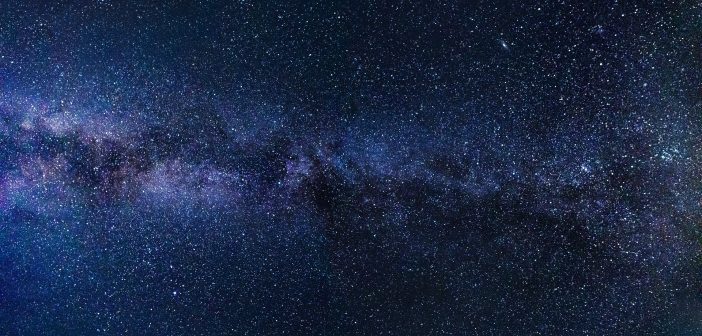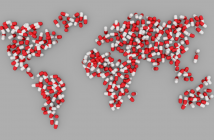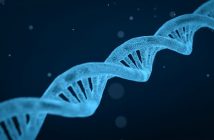Imagine placing a heavy ball in the middle of a large sheet which is being held taut. The ball will warp the sheet, creating a dent. An object placed close to the ball will fall towards it because of the dent. Similarly, the objects in the Universe also create “dents” or distortions in the fabric of space and time. Since these masses are also constantly in motion and spinning around each other, they send out ripples through spacetime. Lighter masses that come near the heavy mass will fall towards it. These ripples are called “gravitational waves”.
Over a hundred years ago, in 1915, Albert Einstein suggested that large masses in space have the ability to warp or bend space and time, a theory which remained a theory until yesterday.
On 3rd October 2017, the Nobel Prize in Physics was awarded to the team who detected and recorded gravitational waves. Rainer Weiss of the Massachusetts Institute of Technology (MIT) and Barry Barish and Kip Thorne of the California Institute of Technology (Caltech) are all members of the Laser Interferometer Gravitational-Wave Observatory (LIGO) team. Weiss was awarded half of the 9-million-kronor ($1.1 million) prize amount whereas Thorne and Barish are to split the other half. Their discovery is considered to be one of the biggest scientific breakthroughs of our time.
The gravitational waves generated by cosmic events diminish so much in strength by the time they reach the earth that only extremely sensitive detectors such as LIGO’s can pick them up. Though the waves have been detected three times before, on August 14, 2017, a gravitational-wave signal produced by the merging of two black holes was detected jointly by the LIGO detectors in the US (in Louisiana and Washington) and the Virgo detector in Europe (Pisa, Italy).
The LIGO press release states that,
“The LIGO Scientific Collaboration and the Virgo collaboration report the first joint detection of gravitational waves with both the LIGO and Virgo detectors. This is the fourth announced detection of a binary black hole system and the first significant gravitational-wave signal recorded by the Virgo detector, and highlights the scientific potential of a three-detector network of gravitational-wave detectors. ”
This breakthrough was the result of cross-border collaboration among various partner organizations and labs across the world. Operated by Caltech and MIT, LIGO is funded by the US National Science Foundation (NSF) and has received financial support for the construction of its detectors from Australia, Germany, and the United Kingdom. The project has also been supported by India, Italy, Spain, Scotland, Korea, Canada, Scotland, the European Union, Hungary and Taiwan, among others. Its research partners are collaborative organizations in themselves, based in Europe, US, Japan and Australia.
As an organization that believes in democratizing access to scientific research, we believe the greatest innovation are the products of cross-border and interdisciplinary collaboration. Recently, we helped an engineer, who was researching Einstein’s gravity, find an expert physicist to help him visualize spacetime and plot graphs for curved spacetime. Dr. Lester Ingber, an alumni of Caltech, is an acclaimed physicist who is the Principal Investigator (PI) of an NSF-funded supercomputer project. Kolabtree’s global pool of freelance scientists, who are from MIT, Stanford, Harvard, etc., work on various scientific projects from all over the world, embracing the true spirit of collaborative scientific research.
Effective collaboration helps scientists break geographical and financial restrictions, and allows access to skills, knowledge and expertise that would otherwise be unavailable. Making research available, affordable and accessible spurs innovation and development. Who would have thought that Einstein’s idea, now a hundred years old, would finally be realized and win one of the most prestigious awards on this planet?







